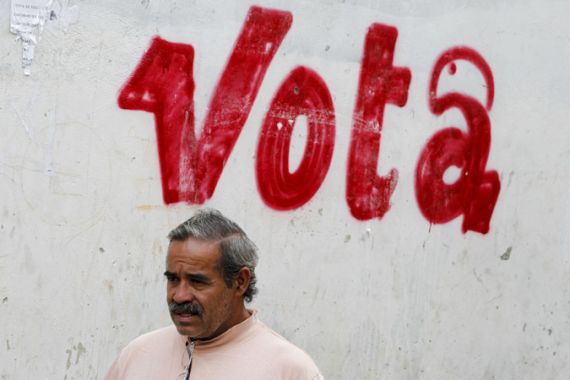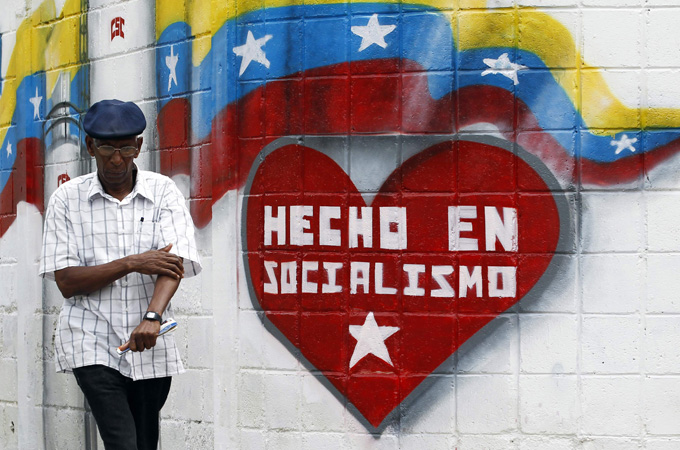Venezuela polls test Chavez’s grip
Ruling party fights to maintain domination of the National Assembly against a unified opposition.

 |
| The United Socialist Party of Venezuela dominated the national Assembly after an opposition boycott in 2005 [Reuters] |
Venezuela is preparing for legislative elections that could see supporters of Hugo Chavez, the president, lose control of parliament.
The opposition has put aside differences to unite under the banner of the Table for Democratic Unity (MUD) as it fights to return to the 165-seat National Assembly after boycotting the last election in 2005.
But Chavez has campaigned hard as the ruling United Socialist Party of Venezuela (PSUV) attempts to hang on to its two-thirds majority.
“I want us to win the elections by a knockout,” Chavez shouted to a sea of his red-clad supporters at a final campaign rally.
Opinion polls suggest that the vote could be tight, but PSUV could benefit from recent changes to voting districts. Under the new system they could win two-thirds of seats in the assembly with just over half of the popular vote.
The opposition boycott in the last election gave Chavez’s party five years of passing laws with little debate, as well as naming key posts such as the president of the supreme court.
‘Democracy at stake’
Opposition leaders, such as Delsa Solorzano, have urged voters to back them this time around to ensure a “plural Venezuela”.
Stalin Gonzalez, a 29-year-old opposition candidate and former student protest leader running against the incumbent assembly president, Cilia Flores, said that the past five years have allowed Chavez amass more power, while the assembly has ignored the country’s violent crime and corruption.
 |
| Opposition parties have united under the banner of the Table for Democratic Unity [Reuters] |
“What’s at stake is democracy, the balance of powers, that there be controls,” Gonzalez said.
“What Chavez is is a populist, and he keeps playing with the public and making electoral offers to try to get support.”
Al Jazeera’s Craig Mauro, reporting from Caracas, said: “These elections essentially boil down to a referendum on Hugo Chavez and whether or not Venezuelans want to trust him with the legislative power to carry on with what he calls a ‘socialist revolution for the 21st century’.”
Chavez remains popular in Venezuela but disillusionment has grown over issues such as crime and a 30 per cent inflation rate, even in the poor areas that have traditionally formed much of his power base.
“I’m not sure if I’m going to vote,” Rosalba Machado Diaz, an unemployed 45-year-old who in the past voted for Chavez and his supporters, said.
“I’m not sure, because there’s so much disenchantment.”
On the campaign trail, Chavez pledged more social programmes while seeking to portray his opponents as stooges serving the interests of Venezuela’s old-guard elite and his adversaries in the US government.
He pointed to a decline in poverty during his presidency and to programmes he began for the poor such as adult education, cash benefits for single mothers and free medical clinics staffed by Cuban doctors.
The legislative elections are an important test for Chavez ahead of a presidential election in 2012.